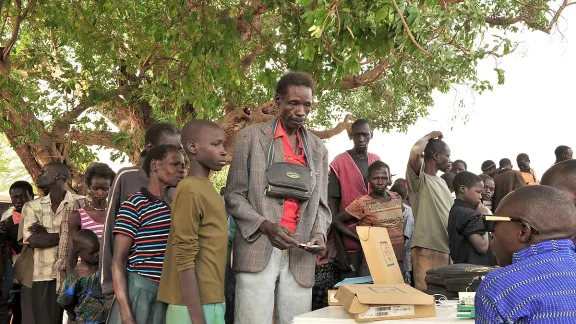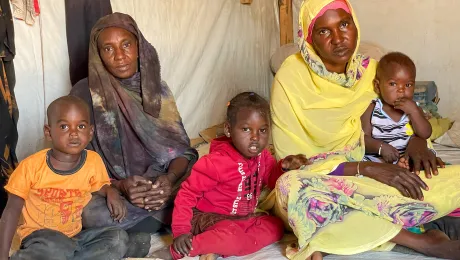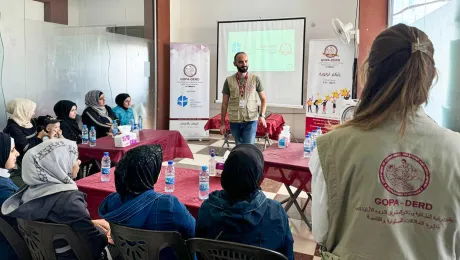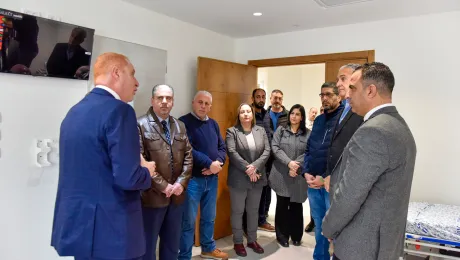
South Sudanese refugees in Northern Uganda, one of the countries where LWF is supporting the implementation of the CRRF. Photo: LWF/C. Kästner
Call on developed countries to step up
The Lutheran World Federation (LWF) joined with ACT Alliance and other NGOs today in presenting a statement during the UNHCR Standing Committee meeting where several UN member states were present. The statement calls upon governments in the developed countries to be more active in addressing the global refugee crisis and emphasizes the importance of civil society participation and inputs from the regions in the formulation of the Global Compact on Refugees. The NGOs’ statement praises the progress in implementing the UNHCR’s Comprehensive Refugee Response Framework (CRRF) in Africa and Latin America.
The consultations for a Global Compact on Refugees are a direct outcome of last year’s summit on large movements of refugees and migrants at the UN General Assembly, which resulted in the New York Declaration. This declaration committed states to develop a Global Compact on Refugees and a Global Compact on Safe, Orderly and Regular Migration.
“The New York Declaration was a landmark for stepping up global efforts to protect refugees,” said Susan Muis, LWF Regional Program Coordinator for Central Africa, who delivered the NGO statement. “We are using opportunities like the Standing Committee to remind states of the commitments they made last year, and to track progress in the implementation of practical measures. Currently, we are seeing a continued pattern of less developed countries of first asylum providing most of the desperately needed assistance to large numbers of displaced people, while others are looking on. This is a concerning trend which needs to be broken if we want to achieve meaningful responsibility sharing in next year’s Global Compact.”
Currently, we are seeing a continued pattern of less developed countries of first asylum providing most of the desperately needed assistance to large numbers of displaced people, while others are looking on. This is a concerning trend which needs to be broken if we want to achieve meaningful responsibility sharing in next year’s Global Compact on refugees.
The LWF works in 25 countries, among them Uganda, Ethiopia, Somalia, Djibouti, Guatemala and other African and Central American countries where pilot programs are feeding into the CRRF process.
LWF fully endorses the NGO statement, which noted the pilot programs’ contribution to legal reforms allowing refugees greater freedom of movement and access to education, work, and services, most notably in Djibouti, Ethiopia, Kenya, and Tanzania. However, the statement also highlighted the “pronounced regional imbalance […] in the design and implementation of the CRRF framework, which continues to focus on less-developed countries of first asylum.”
The statement commends UNHCR’s efforts to include refugee voices in the process, and further promises that “NGOs are willing to work alongside UNHCR to make sure [refugees’] voices are meaningfully heard, including by providing space and support for refugee leaders and refugee-led organizations to effectively contribute.”[CK1]
The UNHCR Standing Committee meetings are convened in Geneva three times a year, discussing thematic issues, as well as providing updates about UNHCR’s activities and programs regionally and globally. They are attended by member states and other stakeholders, including NGOs active in refugee protection around the world. The International Council of Voluntary Agencies (ICVA), of which LWF through ACT Alliance is a member, is a network for increased collaboration and coordination between NGOs and other humanitarian actors.


